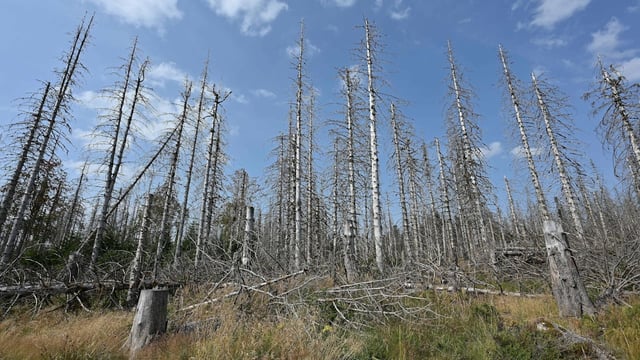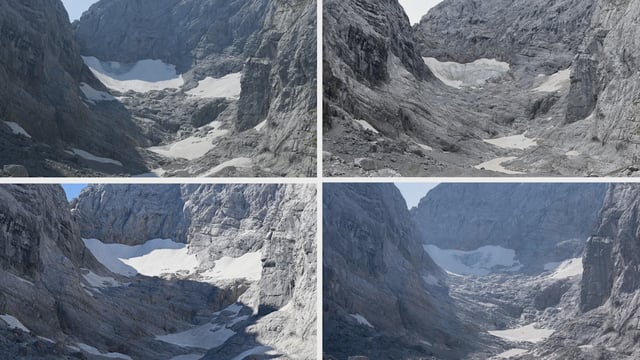Overview
- Deutscher Wetterdienst measurements show Germany is about 2.6°C warmer than the preindustrial era, a rise that exceeds the global average.
- The 2024 Bundeswaldinventur finds roughly four out of five common trees are damaged and that forests have shifted from net carbon sinks to net carbon sources.
- Experts Hermann Lotze-Campen and Wilfried Hagg warn that Watzmann, Blaueis and Nördlicher Schneeferner glaciers face imminent loss of their glacier status.
- Alpine ice melt is reshaping water flows by boosting runoff and flood risks in the short term before causing reduced summer flows and prolonged low-water periods.
- Eastern German lakes have dropped to new lows, undermining habitats for birds and fish and disrupting recreational boating and swimming.



